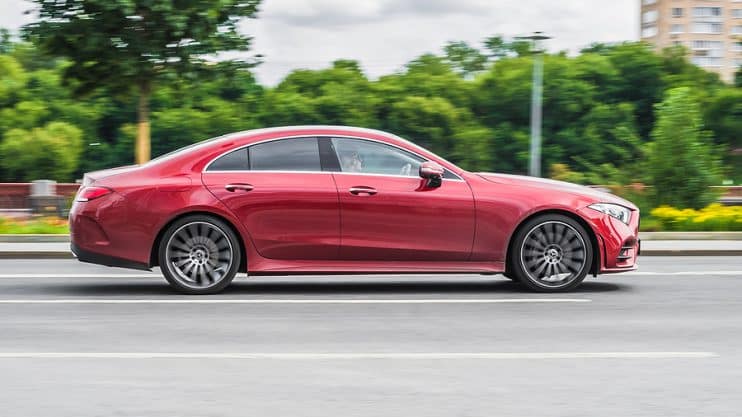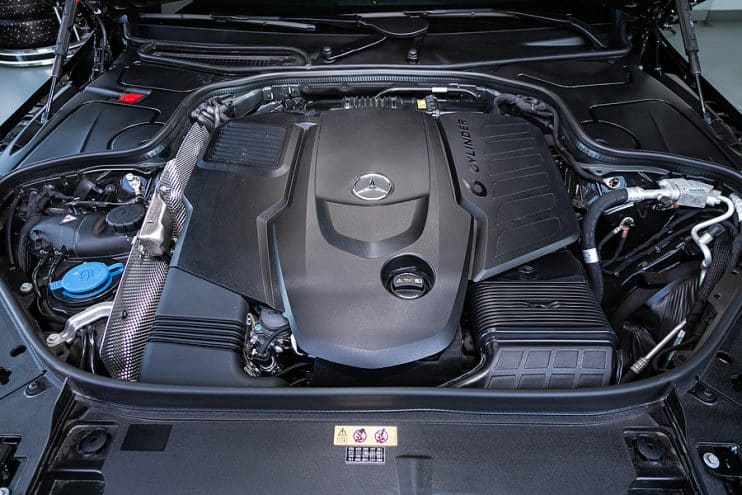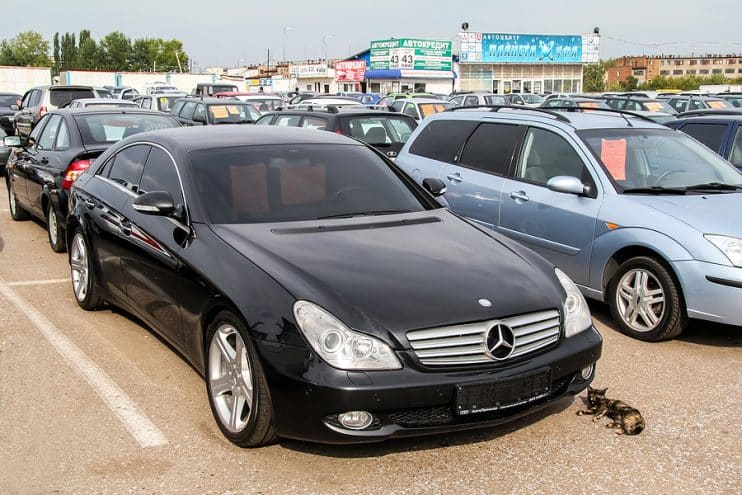
The Mercedes-Benz CLS (Coupé Luxury Sport) blends elegance, performance, and practicality. Introduced to the UK in 2005, the CLS pioneered the “four-door coupe”, combining sleek coupe styling with a sedan’s functionality.
Even a used Mercedes-Benz CLS can come with a hefty price tag, and they can be costly to maintain, so we’d advise exploring the diesel models or the CLS350 petrol variants, which are widely available and may be easier to find new and used Mercedes Benz CLS parts for.
While it’s an impressive car, the CLS isn’t without its quirks. If you’re considering buying a used Mercedes-Benz CLS, this guide will help you understand any common issues and concerns with reliability. Plus, you’ll know what to look for on the forecourt before you drive off in sporty style.
Table of contents:
- What are the most common issues with the Mercedes-Benz CLS?
- How reliable is the Mercedes-Benz CLS?
- Is the Mercedes-Benz CLS expensive to maintain?
- Why was the Mercedes-Benz CLS discontinued?
- What’s the best year for a used Mercedes-Benz CLS?
- What should I look for when buying used Mercedes-Benz CLS?
What are the most common issues with the Mercedes-Benz CLS?
Like any used car, the CLS has its fair share of issues, most of which can be easily addressed but are helpful to know about. Here are some of the most widely reported problems from CLS drivers and owners.
Gearbox problems
The CLS often comes equipped with Mercedes’ 7G-Tronic automatic transmission, which is generally reliable but can develop issues over time. Owners report problems including rough shifting, delayed engagement, valve body failure, and speed sensor problems on the seven-speed auto in petrol and diesel variations. These issues tend to be more common in models with a higher mileage.
If you notice jerky gear changes or warning lights on the dashboard, have the transmission checked by a specialist. Repair kits are available but older models may need a new valve body. In severe cases, you may need a replacement gearbox.

Engine troubles
The CLS offers a range of engines, from the V6 petrol and diesel units to the powerful V8 in the CLS 63 AMG. However, some engines are prone to specific issues:
- Misfires – caused by faulty ignition coils, spark plugs, or fuel injectors.
- Oil leaks from the rocker cover gasket and balancer shaft seals. In some cases, oil can leak from the engine, leading to sludge buildup in the oil channels.
- Timing chain and balancer shaft issues in the early models, especially the CLS 350 and CLS 500, can lead to costly repairs or even a replacement engine. It’s worth checking the engine number on these early models to identify any potential balancer or shaft issues.
Suspension
The CLS’s air suspension system provides a smooth ride but can be expensive to repair. Common issues include leaking air springs and failing air compressors. If it feels like your motor’s uneven or you hear hissing noises, there might be a problem with the air pump, or you could have corrosion. Standard suspension components, such as rear springs and shocks, can also wear out over time, especially on higher-mileage models.
Electrical issues
The CLS is packed with advanced technology, but its electrical systems can play up from time to time. Common issues include:
- Infotainment system: Bluetooth connectivity problems pairing an older system to a newer phone, screen glitches, and unresponsive controls.
- Rear lights: Rear lights can get pinched and wear out where the wiring passes by the boot.

How reliable is the Mercedes-Benz CLS?
While the CLS is generally well-built and holds its value better than many competitors, its reliability can vary depending on the model year and maintenance history. On What Car, the CLS Shooting Brake 2012 – 2018 scores a respectable 4 out of 5 stars, with diesel models from 2012-2014 particularly dependable. However, Mercedes as a brand finishes 24th out of 31 manufacturers, which isn’t encouraging if you’re purchasing your first Mercedes.
While it’s slightly smaller than the E-Class, the CLS shares many components, which may make parts more accessible and affordable. The CLS is manufactured in Germany, and its quality reflects Mercedes-Benz’s reputation for precision engineering. However, its advanced technology and complex systems mean maintenance costs can increase.
Having said all that, the CLS holds its value relatively well due to its desirability, sporty performance and reputation for reliability.
Is the Mercedes-Benz CLS expensive to maintain?
There’s no doubt that owning a CLS can be expensive, especially if you have a higher-performance model like the CLS 63 AMG. Even routine maintenance, such as oil changes and brake pad replacements, can be more expensive than average for this premium motor.
Major repairs, like fixing the air suspension or replacing a gearbox, can be very pricey. Replacing air suspension struts can cost upwards of £1,000, while a rebuild or full replacement gearbox can cost even more. To minimise these costs, it’s a good idea to look for a well-maintained model with a full service history and even consider purchasing an extended warranty if you can afford it.
Why was the Mercedes-Benz CLS discontinued?
Mercedes-Benz discontinued the CLS in 2023 to free up the brand’s capacity to produce more of the new E-Class and streamline its portfolio of cars. The Mercedes-AMG GT 4-Door Coupe and the EQE Saloon have largely taken on the CLS’s role as a luxury four-door coupe. While the CLS will be missed, its legacy lives on in these modern successors, and there’s always the smaller, more affordable CLA available.
What’s the best year for a used Mercedes-Benz CLS?
This depends on your priorities. If you value reliability, go for models from 2015 to 2018 models, as most early issues were ironed out by the time these were produced. But if you want cooler styling, improved technology and a more efficient engine, you’d be wise to opt for the third-generation CLS, introduced in 2018.
It’s best to avoid early models from 2004 to 2011 unless they’ve had significant repairs, as they’re more prone to issues like SBC pump failure, timing chain problems, and air suspension problems.

What should I look for when buying used Mercedes-Benz CLS?
- A full service history is essential to ensure the car has been well-maintained.
- Engine and Gearbox: Check for smooth operation of the gearbox, and listen for unusual engine noises like rattling or clanking.
- Test the air suspension by raising and lowering the car, and look for any signs of unevenness.
- Make sure you test all infotainment functions, including the windows and seat controls.
- Inspect the bodywork for scrapes, kerbed wheels, or water ingress, especially around the sunroof.
- Make sure that any recalls, such as those for fuel leaks or emissions, have been addressed.
While it has its fair share of issues, a well-maintained CLS can be a joy to drive. Knowing the potential pitfalls to look out for can improve your buying experience and make ownership more rewarding.






.png)